Coronavirus can live on surfaces for days
Coronavirus can live on surfaces for days
Mangalore Today News Network
March 18, 2020: Research suggests the coronavirus may survive on surfaces for several days - this includes things like door knobs, hand railings, and cutlery handled by others.
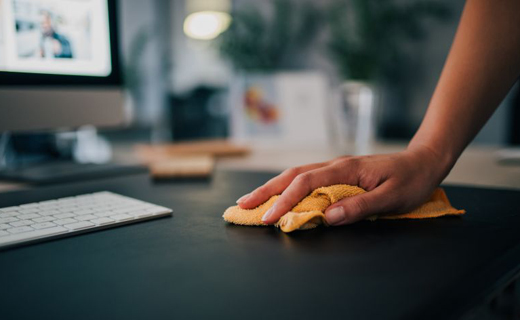
Although coronavirus is known to spread via coughs and sneezes, initially little was understood about whether the virus “lurks” in the air or on surfaces.
Now it’s become clear it can be both, which is why washing your hands regularly has become one of the best defences against getting it.
Is coronavirus airborne?
When it comes to whether COVID-19 survives on hard surfaces, the US Centers for Disease Control and Prevention says it “may be possible a person can get [the virus] by touching a surface or object that has the virus on it and then touching their own mouth, nose, or possibly their eyes”.
This basically means that droplets from an infected person can land on doorknobs, elevator buttons, handrails or countertops and then spread the virus to anyone who then touches these surfaces, doesn’t wash their hands and goes on to touch their face.
To learn more about how long coronavirus can live on surfaces, scientists from the National Institutes of Health in the US used a nebuliser device to expel the virus into the air, mimicking a cough or sneeze.
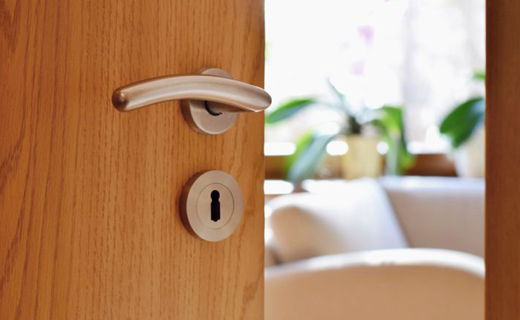
How long can coronavirus live on surfaces?
The results suggest the “viable” Covid-19 virus could be detected up to three hours later in the air, up to four hours on copper, up to 24 hours on cardboard, and up to three days on plastic and stainless steel.
The findings are yet to be peer reviewed, but experts have called them “sobering” and “scientifically sound”.
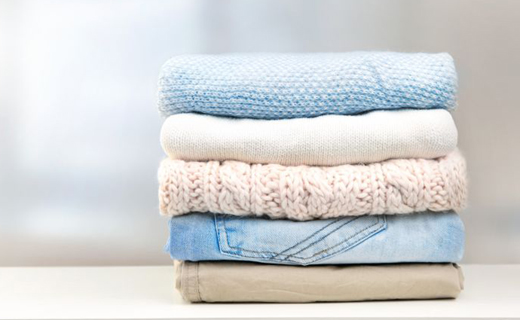
How long can coronavirus live on clothing?
Little research has been done on whether the coronavirus can linger on surfaces like clothing or carpeting.
Daniel Kuritzkes, an infectious disease expert at Brigham and Women’s Hospital, however said that based on prior research, it seems that “flat surfaces and hard surfaces are more friendly to viruses than cloth or rough surfaces.”
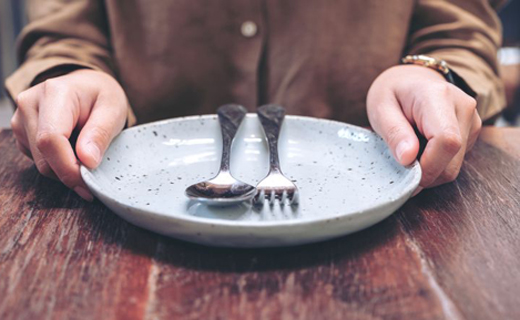
How long can coronavirus live on cutlery?
Daniel also explained that food is not a major risk factor as the virus attacks the respiratory system and not the digestive tract.
So infection comes from getting the virus on your hands and then touching your own eyes, nose and mouth.
“Of more concern would be utensils, and plates and cups that might be handled by a large number of people in a cafeteria setting, for example,” he told Huffpost.
So the above research findings would apply - the virus can live on plastic or steel cutlery for up to three days if not washed properly.
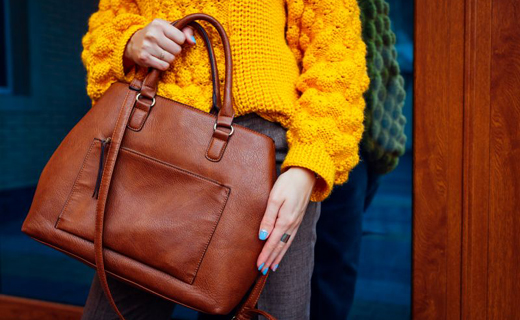
How long can coronavirus live on bag handles?
Handbags have long been considered a harbinger of germs at the best of times. According to the experts at Handbag Clinic, a luxury handbag restoration retailer, a bag can actually hold 10,000 types of bacteria - making them dirtier than the average toilet.
Co-founder of the Handbag Clinic Charlotte Staerck told Daily Mail the more often a handbag is used, the more likely natural oils - and potentially the virus - are transferred from your hands onto the leather.
However, as it was mentioned above, there is currently no evidence that COVID-19 can be transmitted from soft surfaces like fabric or carpet.
But the warning remains to avoid placing handheld items on floors in public spaces.
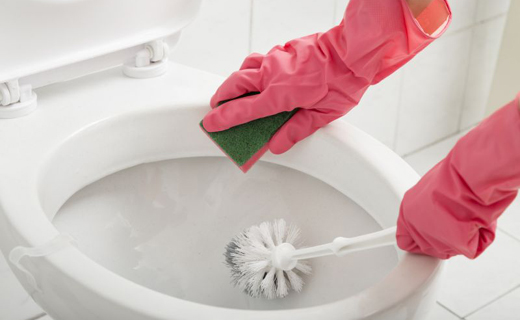
Can the virus spread from the bathroom?
The simple answer is yes. Early research suggested that COVID-19 may be spread through people’s faeces, especially if people aren’t washing their hands properly.
We’re also warned against the spread of germs when we flush a toilet - a flush essentially “sneezes” and sprays tiny spurts of water all over the place and may land on your pants, the doors, surfaces and sink.
Experts suggest to be vigilant when using the toilet - Put the seat down, take a step back, cover your face (especially your mouth and eyes), then wash your hands.
Then use a disinfectant wipe in the bowl, another on the seat, and another on the lid if you are cleaning the toilet. There are also bleach-based toilet-bowl cleaners that can reduce the number of organisms expelled from a flush.
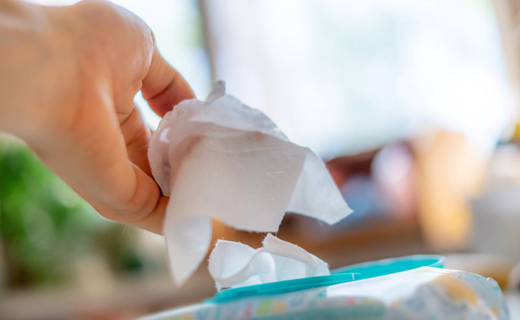
Do disinfectant wipes work to eliminate the virus?
A study from 2018 found that contagious, disease-causing bacteria from people’s guts and faeces can be found on most public touch screens, so it’s important to wipe down basically everything before you touch it.
According to Dr. Charles Gerba, a professor of microbiology and immunology at the University of Arizona, coronavirus is a ‘lipid-containing’ virus, which means it can be easily killed with wipes, and most disinfecting wipes claim they can kill up to 99.9 per cent of germs.
But another study did warn of a common mistake people make when it comes to using wipes - if it’s reused, that bacteria is transferred to the new location.
Basically, use one wipe for one surface, then throw it away.
Health experts are also recommending using ethanol or bleach-based wipes rather than benzalkonium chloride or hydrogen peroxide disinfectants.
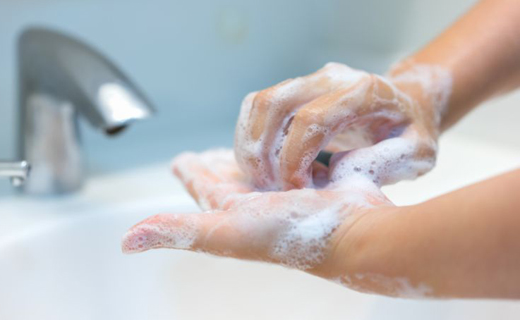
Why it’s so important to wash your hands
It’s estimated we touch our face up to 23 times per hour and now that we know the virus can linger on common surfaces and be transferred to our hands it’s clear why hand washing is so important.
Scrub for at least 20 seconds with warm, soapy water, and remember your thumbs, fingertips, and in between fingers.
Professor Willem van Schaik from the University of Birmingham added, “Coronaviruses appear to remain viable on surfaces for longer periods of time than the flu viruses, which may contribute to its rapid spread.
“The implications of this are very clear: people should wash their hands very frequently (whenever they enter or leave their home/work etc) and should try to minimise touching their faces (and this is extremely difficult to do).”
Professor William Keevil from the University of Southampton also noted many surfaces are difficult to avoid, like door handles and touchscreens in public places.
“[The study] re-emphasises the need for good personal hygiene such as washing hands rigorously throughout the day, or using an alcohol hand gel, and avoid touching the eyes, nose and mouth,” he said.
- Woman, part of Indian crew on board ship seized by Iran, returns home
- Kejriwal eating food high in sugar despite diabetes to make grounds for medical bail: ED tells court
- Explained | Why Lok Sabha polls is spread over six weeks
- Businessman Raj Kundra’s properties worth nearly ₹ 100 crore seized
- Nestle India says ’have been cutting sugars in baby food’ after damning report
- I.N.D.I.A. to introduce guarantees soon: White Paper on Pulwama, MSP on the cards
- Kerala: Bird flu outbreak reported in Alappuzha
- Vadodara traffic police uses AC helmets to tackle heatwave
- LS polls 2024: Nomination process for fourth phase begins
- ‘No Jai Shri Ram, only…’: Bike-borne men assault 3 in Bengaluru on Ram Navami
- Nestle adds 3 gm sugar in every serving of cerelac sold in India: Report
- Why is Rahul Gandhi hesitant to contest in BJP-ruled states?: Ghulam Nabi Azad
- WhatsApp will soon let you see which of your friends were recently online
- Kasaragod: SC asks EC to check reports of EVMs registering ‘extra votes’ for BJP in mock polls
- Elect a representative who works for you, Hegde tells voters
- St Joachim church Kadaba, commemorated its Centenary celebration on April 17
- BJP seeks Rahul Gandhi’s answer to State’s ‘bankruptcy’
- Puttur: Bike-jeep collision claims rider’s life
- Bantwal: Man arrested for stabbing Hindu Yuva Sene leader
- Bantwal: Woman jumps into river in front of her father, daughter
- Citizens Council to host interactive session with External Affairs Minister S Jaishankar
- Bridge collapse case: Cops register case against contractor
- Mangaluru: 6,658 people exercise home voting till date
- Yogi Adityanath likely to hold road show in Udupi on April 24
- Nirmala Travels founder Nirmala Kamath passes away
- New residential complex for the judges inaugurated in Mangaluru
- Absconding accused nabbed after 8 years
- Truck with cylinders turns turtle in Beltangady
- Bhoota Kola artist dies of cardiac arrest
- Development of the country should be our goal: Ganesh Karnik
- Container truck gets stuck under Modankap railway bridge
- Truck crushes bike’s pillion rider near BC Road
- Head constable dies of heart attack
- Udupi: PDO dismissed over financial irregularities
- CREDAI to resume Skill Development Program for Construction Workers in Mangaluru
- John B Monteiro elected president of Rachana Catholic Chamber of Commerce & Industry
- Sudhanshu Rai elected district president of All College Student Association
- Chief Minister to visit Mangaluru, Udupi on August 1
- Nitte University awards PhD degree to Tina Sheetal D’Souza
- Sachitha Nandagopal honoured by CMTAI for Community Service
- CITY INFORMATION
- TRAVEL
- TOURIST INFORMATION
- HEALTH CARE
- MISCELLANEOUS




 Write Comment
Write Comment E-Mail
E-Mail Facebook
Facebook Twitter
Twitter  Print
Print 

